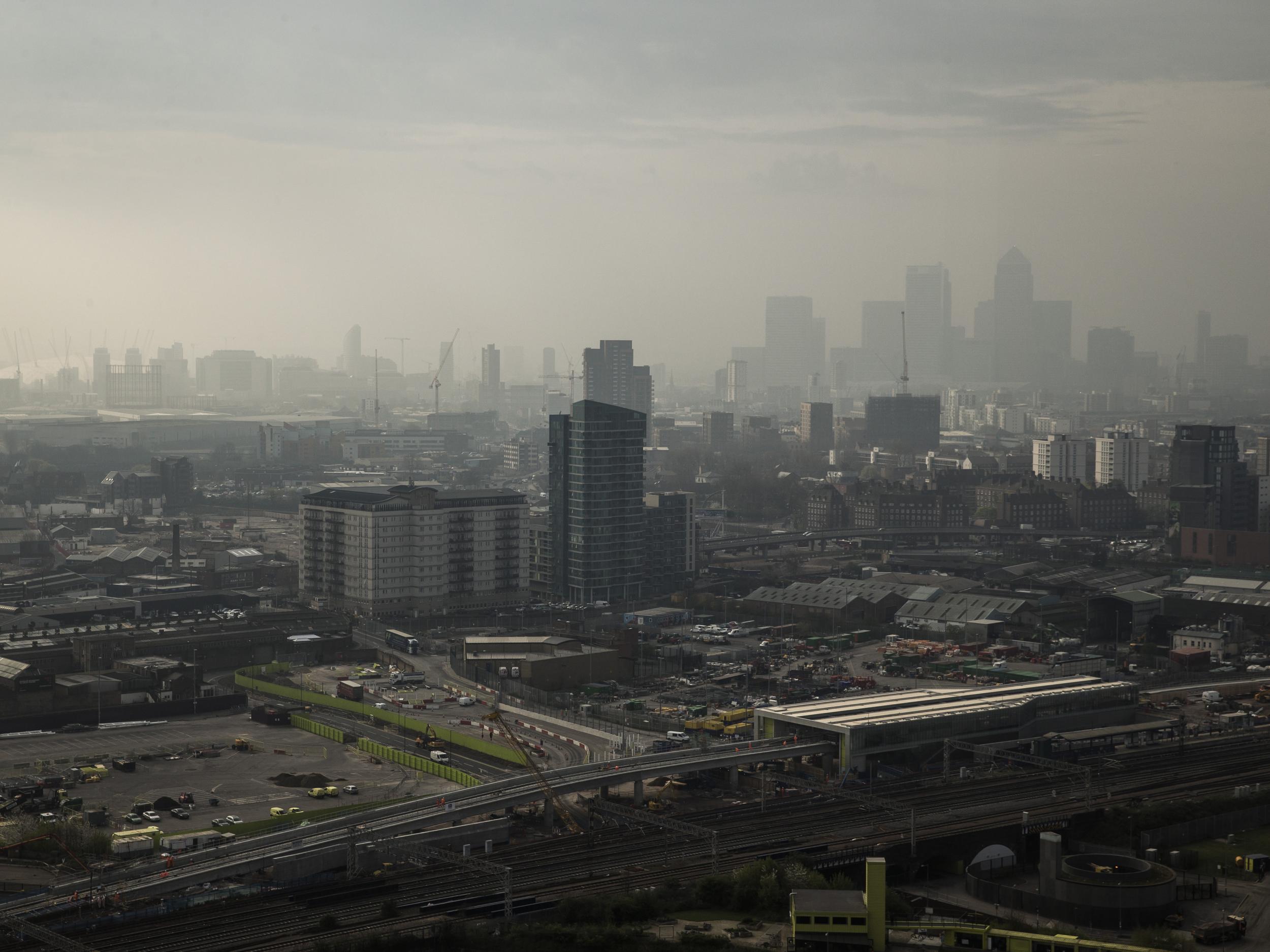UK air pollution deadlier than across half of western Europe, reveals WHO report
'In the UK, air pollution is a public health crisis hitting our most vulnerable the hardest – our children, people with a lung condition and the elderly'

Your support helps us to tell the story
From reproductive rights to climate change to Big Tech, The Independent is on the ground when the story is developing. Whether it's investigating the financials of Elon Musk's pro-Trump PAC or producing our latest documentary, 'The A Word', which shines a light on the American women fighting for reproductive rights, we know how important it is to parse out the facts from the messaging.
At such a critical moment in US history, we need reporters on the ground. Your donation allows us to keep sending journalists to speak to both sides of the story.
The Independent is trusted by Americans across the entire political spectrum. And unlike many other quality news outlets, we choose not to lock Americans out of our reporting and analysis with paywalls. We believe quality journalism should be available to everyone, paid for by those who can afford it.
Your support makes all the difference.Air pollution in the UK is more deadly than in about half of western Europe, according to a major report by the World Health Organisation (WHO) into how people die.
The report revealed that the causes of nearly half of the estimated 56 million deaths worldwide in 2015 had been recorded – a major step towards trying to reduce them.
In dry, statistical terms, it catalogued human suffering and grief as never before.
About 830 women die every day due to complications in pregnancy or childbirth; 43 out of every 1,000 children born die before they reach the age of five; 800,000 people took their own lives; and 1.25 million died in road traffic collisions, the leading cause of death for those aged 15 to 29.
Indoor and outdoor pollution led to the demise of 6.5 million people worldwide in 2012, 11.6 per cent of all deaths. Unsafe water, sanitation and hygiene problems were responsible for about 871,000 deaths.
In the UK, the Government recently produced its third attempt at a plan to bring air pollution to within levels considered safe under European Union legislation after judges ruled the previous versions were not effective enough to comply with the law. It was dismissed as “feeble” by the Green Party.
The mortality rate attributed to air pollution in homes and outside for the UK was 25.7 per 100,000, the 15th worst rate in Europe, according to the WHO report.
By comparison, Sweden’s air pollution death rate, one of the lowest in the world, was just 0.4 per 100,000, followed by Finland (6) and Iceland (6.4). The UK’s air is also more deadly than in Spain (14.7), France (17.2) and the Netherlands (24).
Dr Penny Woods, chief executive of the British Lung Foundation, said: “This report confirms that the deaths attributable to air pollution are higher in the UK than for many other comparable European countries, including France and Spain.
“In the UK, air pollution is a public health crisis hitting our most vulnerable the hardest – our children, people with a lung condition and the elderly.
She said it was “deeply tragic” that millions of lives ended prematurely worldwide because “the air we breathe is dirty and polluted”.
“Yet, we are in the fortunate position of having the technology and resources to fix this problem. It’s time to use what we have to sort this problem out as a matter of urgency and clean up our filthy, poisonous air,” Dr Woods said.
She said the next Government should bring in a new Clean Air Act to “protect the nation’s lung health”.
Dr Woods added that, while progress was being made in high-income countries to reduce deaths from cardiovascular disease and cancer, those caused by lung disease had “remained tragically constant”.
“Our report last year found that this couldn’t be truer for us in the UK, where one person dies from lung disease every five minutes – a statistic that has remained the same for a decade,” she said.
“It’s time to end the neglect and under-prioritisation of lung disease. The next Government should support a national taskforce for lung health.”
The WHO welcomed the improvements made in recording causes of death.
“If countries don’t know what makes people get sick and die, it’s a lot harder to know what to do about it,” said Dr Marie-Paule Kieny, a WHO assistant director-general.
Join our commenting forum
Join thought-provoking conversations, follow other Independent readers and see their replies
Comments